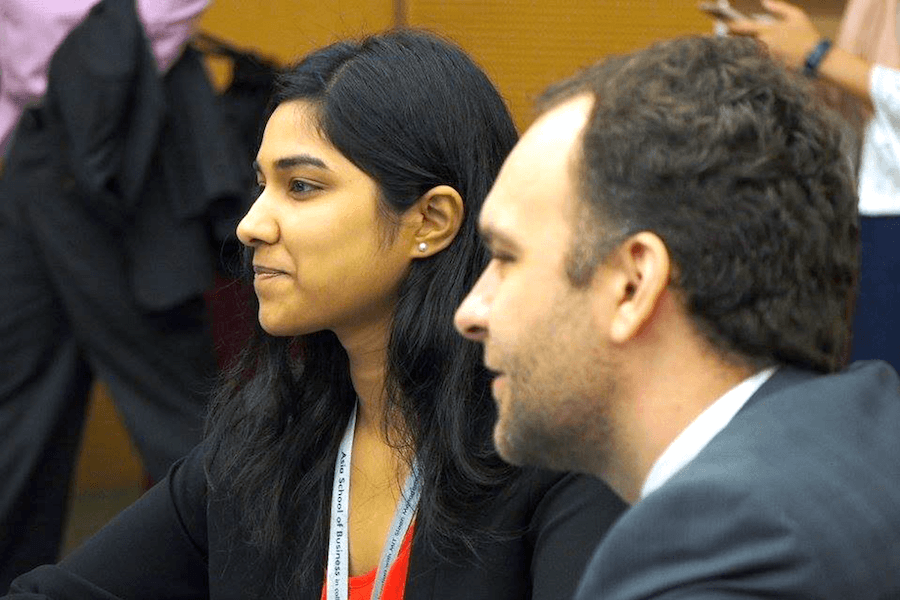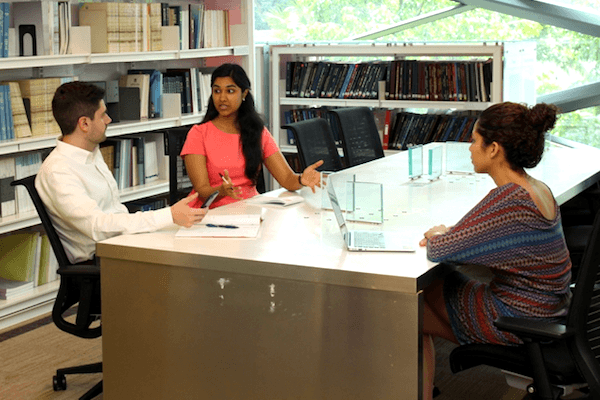With a lifelong passion for travelling, Allenie Caccam pulled off every jobseeker’s dream of combining her job and her passion. Allenie landed a job four years ago with leading low-cost airline AirAsia, where, in her role as a senior manager in the Philippines’ international marketing development team, she helped expand AirAsia’s nine routes to 19 in the ASEAN and North Asia regions.
But travelling on the job, and enabling more people to travel for less, weren’t enough for Allenie. An MBA that came with the chance to explore the world beyond the Philippines was too enticing to turn down. With four years under her belt at AirAsia, Allenie began looking for opportunities to improve her business knowledge and skills. “I wanted to understand the business and operations side of the company, as my focus [until now] was on the product and marketing,” Allenie notes.
Allenie was also keen to try new opportunities, expanding her professional experience beyond tourism and aviation. AirAsia offers their employees a scholarship to earn an MBA at Asia School of Business (ASB) in Kuala Lumpur—an opportunity that jumped out at Allenie for several reasons. The program ticked many of her boxes—living in an international city, expanding her business knowledge at a top school, and getting hands-on experience through the Action Learning Program, where students undertake five real-world consulting projects over the course of the 20-month MBA.
One of the biggest draws, however, was travel-related. When researching ASB, Allenie discovered its connection to MIT Sloan School of Management, a link that “lent a lot of credibility to the program.” MIT’s cultural DNA is embedded in the curriculum and instruction at ASB, with MIT Sloan faculty teaching courses in Kuala Lumpur. “The level of excellence is the same, reflecting how the MIT culture is replicated at ASB,” Allenie enthuses.
As well as sharing faculty, one of the most exciting parts of the partnership between the schools is the MIT Spring Immersion Program, taking place over four weeks at the MIT campus in Cambridge, MA. Through the program, MBA students get the chance to live and breathe MIT, involving themselves in the school’s academic and extracurricular life. This level of immersion is rare for short-term student exchange programs.
“You feel like you’re actually in a community on campus,” Allenie raves. “The environment is conducive to learning, and makes you want to involve yourself in everything.” This also pays off on paper, as students receive an MIT certificate after completing the program, as well as affiliate alumni status and an MIT email for life. For Allenie, the chance to study at one of the world’s top business schools feels “aspirational.”
The experience has pushed her to think of ways that she can bring more MIT initiatives back to ASB and build the same environment for her MBA class and future students. The immersion at MIT Sloan revealed to Allenie a lot more about her own aspirations as an entrepreneur. “I’ve always worked in a corporate culture, but now I understand the culture, mindset, and personality you need to be an entrepreneur. It’s something everyone should learn,” Allenie professes.
One course in entrepreneurship reignited her passion to start a business in the future with her family in the Philippines. As part of the course, the MBA class attended entrepreneurship events where innovators pitched their business ideas, showing Allenie what it takes to build a startup from idea to execution. This was also helped by another course in system dynamics. “It teaches you how to think of processes in a strategic way—you can use it in almost every decision you make,” Allenie notes.
Now back in Kuala Lumpur, Allenie reflects on her experience at MIT Sloan. “One of my key takeaways was the importance of building a community and pursuing diversity to stimulate creativity and intelligent discourse. This can be applied in any kind of working or business environment,” she says. Allenie has a clearer idea about her future—and, unsurprisingly, it’s international.
Read the full article here.
This article was originally published on BusinessBecause, a network helping MBA students make connections before, during and after their MBA.








